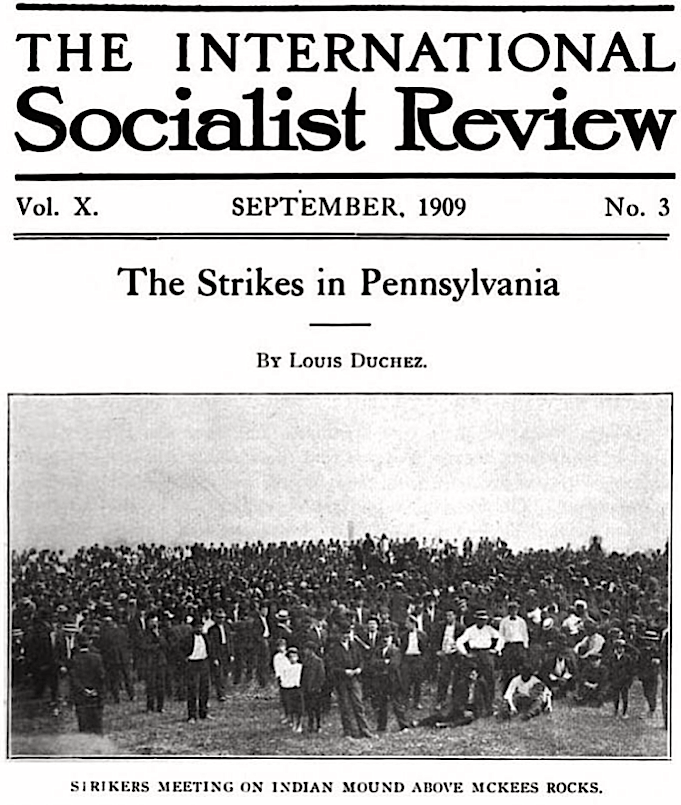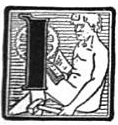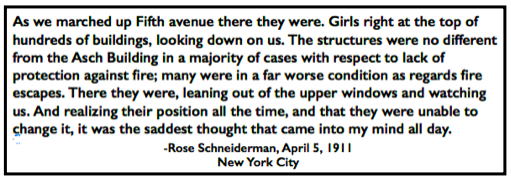 ———-
———-
Hellraisers Journal – Thursday May 4, 1911
Louis Duchez on Murder of Shirtwaist Makers in New York City, Part II
From the International Socialist Review of May 1911:
THE MURDER OF THE SHIRT WAIST MAKERS
IN NEW YORK CITYBY LOUIS DUCHEZ
Photographs by American Press Ass’n.
[Part II of II.]
Violations of the law? Yes, enough to hang half a dozen rich exploiters and politicians. But these men won’t hang.
The owner of the building claimed he lived up to the letter of the law. So did the owners of the shirtwaist concern, Blanck and Harris. They blame the city officials. The State Commission of Labor also blames the city officials. On the other hand, the city officials are hunting for someone to point to. One of these gentlemen divides the guilt between God and the “public conscience.”
The more important facts, however, are as follows: While the holocaust was taking place the superintendent of public buildings, Rudolph P. Miller, was on a pleasure trip to Panama. Under questioning conducted by Fire Marshal Beers he admitted that the Asch building, in which the fire took place, had not been inspected since it was built, ten years ago. He said he was not even sure that he passed on the building before it was occupied. Miller is not an architect; he is simply a civil engineer-with a “pull.” In his testimony he also admitted that he knew of “graft” from building owners being accepted by inspectors. Miller blamed the police department.
According to the state law, “fire-proof” buildings need not put up more than one fire escape. And that’s all the Asch building had. And this one was useless. When the flames heated the flimsy iron work. it bent like wire. Besides, the scaling ladders were not fit to use and the extension ladders reached only to the 6th floor. The hose, too, was rotten, and the fire apparatus was only so in name. Then iron shutters blocked the fire escape, such as it was.
The locked doors have been mentioned. There was no fire escape to the roof. The machines were so closely packed together, in order to save space. that a panic resulted when the fire first started. Large piles of combustible goods obstructed every aisle and opening, also, if the building and conditions had been deliberately planned for the cremation of human beings, it could not have been more perfect.
To look at the Asch building since the fire one could not tell from the outside that anything had happened to it, were it not for the broken windows. As a matter of fact, the damage only reached $5,000. Everything was insured-but the slaves.

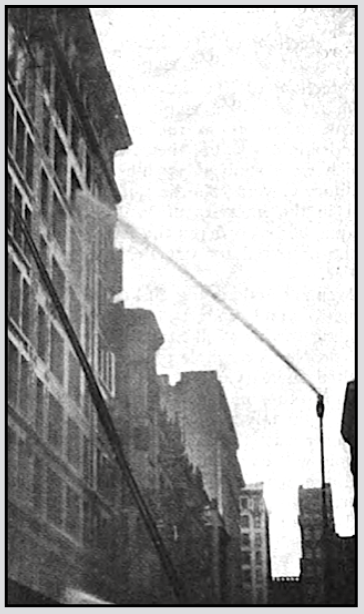
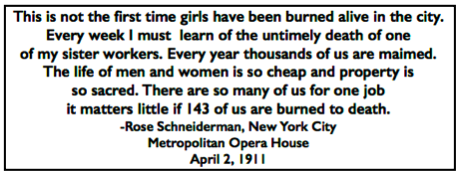 —————
—————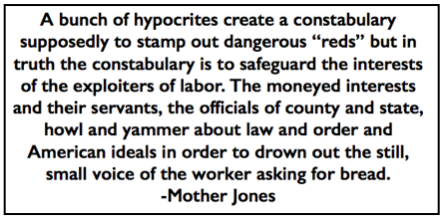 ———-
———-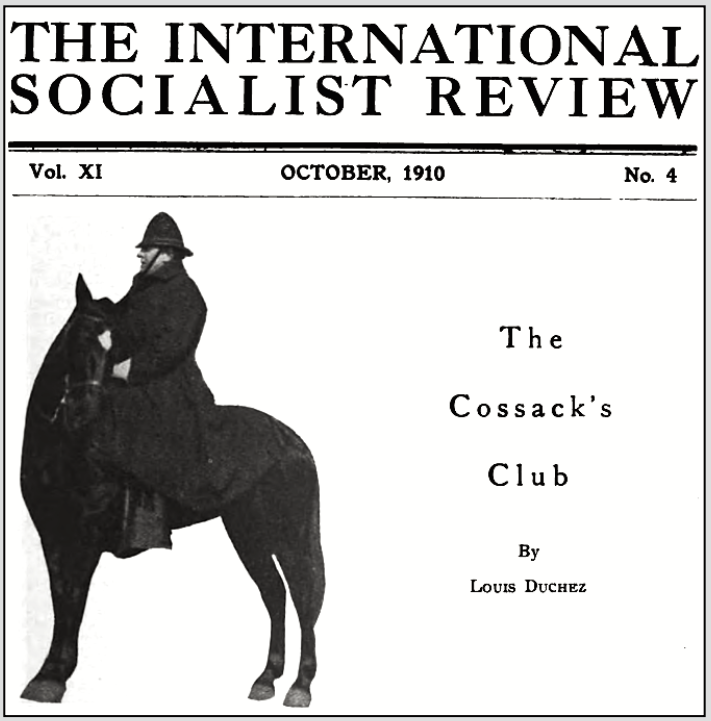
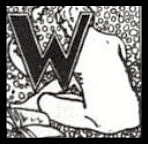
 ———-
———-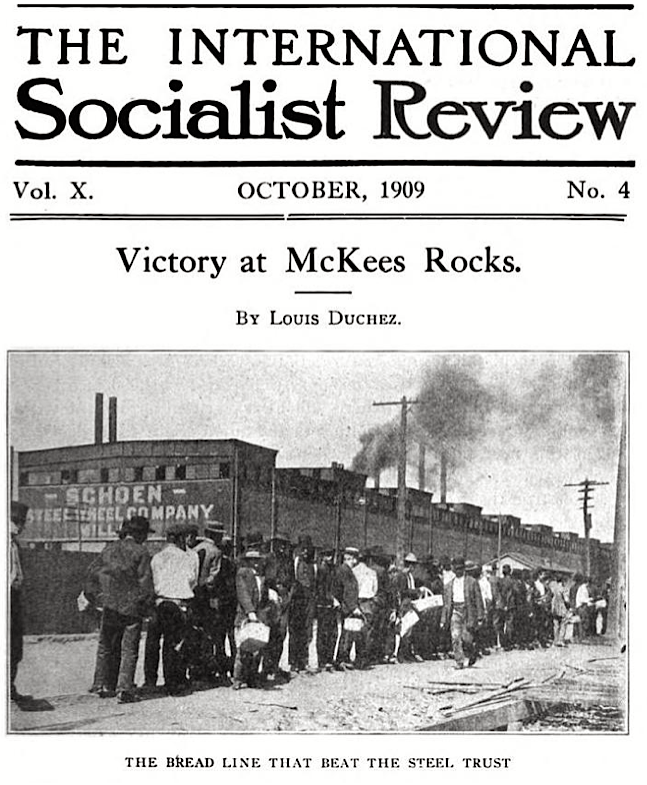
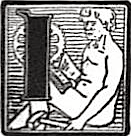 N this article the writer is not going to give much space to a recitation of the crimes of the capitalist class at McKees Rocks and the other strike points in Pennsylvania. It is unnecessary. The capitalist press has done that more effectively—regardless of the motives that may have prompted them—than he is able to do. The class struggle is a historic fact and the diametrically opposed interests have long ago been proven. Such practices as were exposed during the last few weeks are only the logical result of the capitalist system of society at this stage of working class activity.
N this article the writer is not going to give much space to a recitation of the crimes of the capitalist class at McKees Rocks and the other strike points in Pennsylvania. It is unnecessary. The capitalist press has done that more effectively—regardless of the motives that may have prompted them—than he is able to do. The class struggle is a historic fact and the diametrically opposed interests have long ago been proven. Such practices as were exposed during the last few weeks are only the logical result of the capitalist system of society at this stage of working class activity.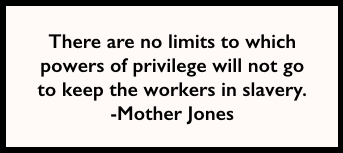 ———-
———-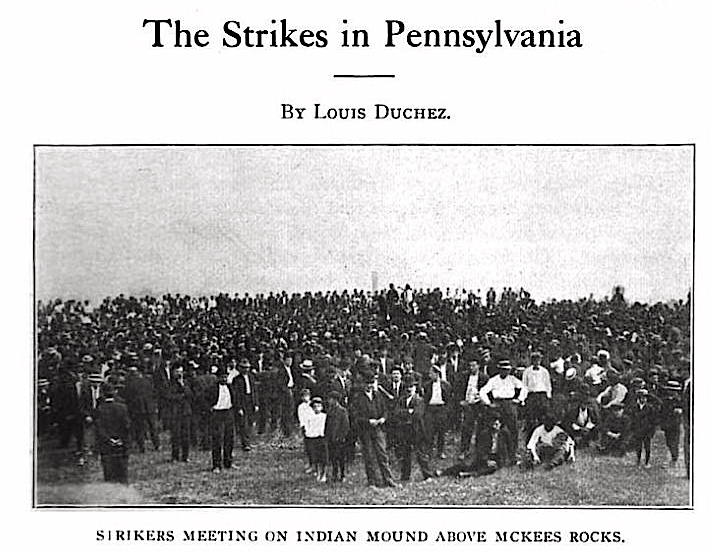 —–
—–